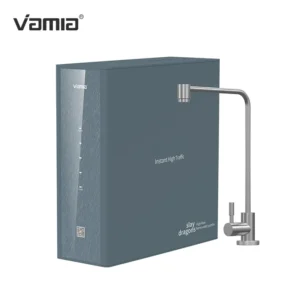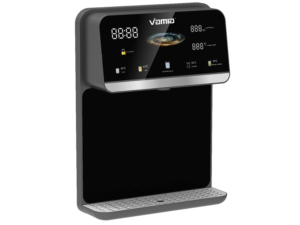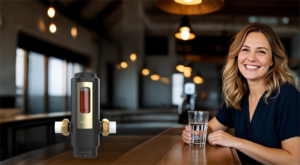Antibiotics in Tap Water Cause Drug Resistance? Urgent Alert
The presence of trace antibiotics in tap water, though minute, poses a quietly growing threat: the potential to foster
drug-resistant bacteria in the human body. These residues enter water systems primarily from agricultural runoff,
where livestock waste containing unmetabolized antibiotics seeps into groundwater, and from improper disposal
drug-resistant bacteria in the human body. These residues enter water systems primarily from agricultural runoff,
where livestock waste containing unmetabolized antibiotics seeps into groundwater, and from improper disposal
of human medications.


Studies detect antibiotics like tetracycline and ciprofloxacin in public water supplies at concentrations as low as
0.1-10 nanograms per liter. While these levels seem negligible, chronic exposure can disrupt the body’s microbiome.
Bacteria in the gut, exposed to constant low doses, may mutate over time, developing mechanisms to resist common
antibiotics—a phenomenon known as antimicrobial resistance (AMR).

0.1-10 nanograms per liter. While these levels seem negligible, chronic exposure can disrupt the body’s microbiome.
Bacteria in the gut, exposed to constant low doses, may mutate over time, developing mechanisms to resist common
antibiotics—a phenomenon known as antimicrobial resistance (AMR).

AMR makes infections harder to treat, increasing healthcare risks and costs. Vulnerable groups, including the elderly,
children, and those with weakened immune systems, face heightened dangers. Traditional water treatment plants
often struggle to fully remove these tiny molecules, as their design targets larger contaminants.
children, and those with weakened immune systems, face heightened dangers. Traditional water treatment plants
often struggle to fully remove these tiny molecules, as their design targets larger contaminants.
Advanced water purifiers offer a solution. Systems with reverse osmosis (RO) or nanofiltration membranes can trap
antibiotic molecules, while activated carbon filters with specific adsorption properties further reduce residues. Regular
filter replacement is key, as saturated filters lose effectiveness.
Water Purifier Factory, Water Purifier For Home, Water Purifier Machine,Water Purifier, Water Filter Purifier System
antibiotic molecules, while activated carbon filters with specific adsorption properties further reduce residues. Regular
filter replacement is key, as saturated filters lose effectiveness.
Water Purifier Factory, Water Purifier For Home, Water Purifier Machine,Water Purifier, Water Filter Purifier System
Reducing antibiotic use in agriculture and proper medication disposal help at the source, but a reliable home purifier
provides a critical final barrier. Protecting your water from these invisible threats is no longer optional—it’s a necessity for long-term health.
Antibiotics in Tap Water Cause Drug Resistance? Urgent Alert
provides a critical final barrier. Protecting your water from these invisible threats is no longer optional—it’s a necessity for long-term health.

